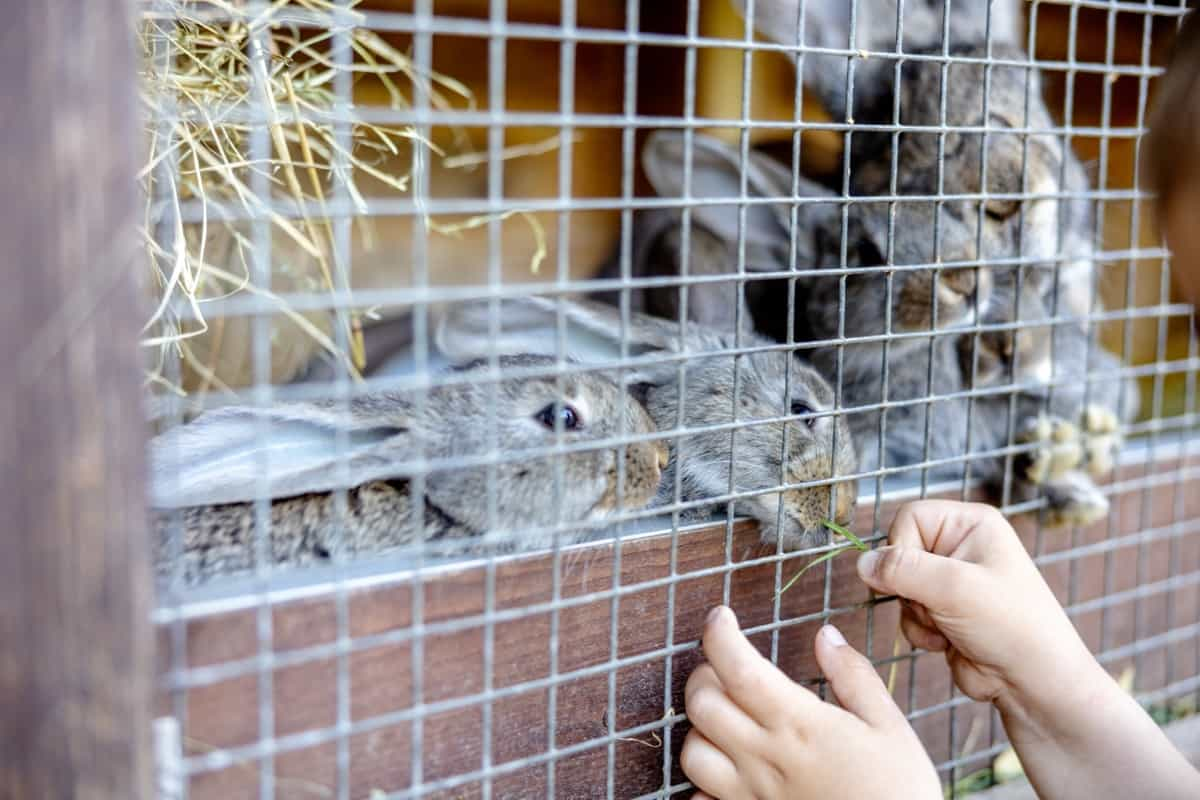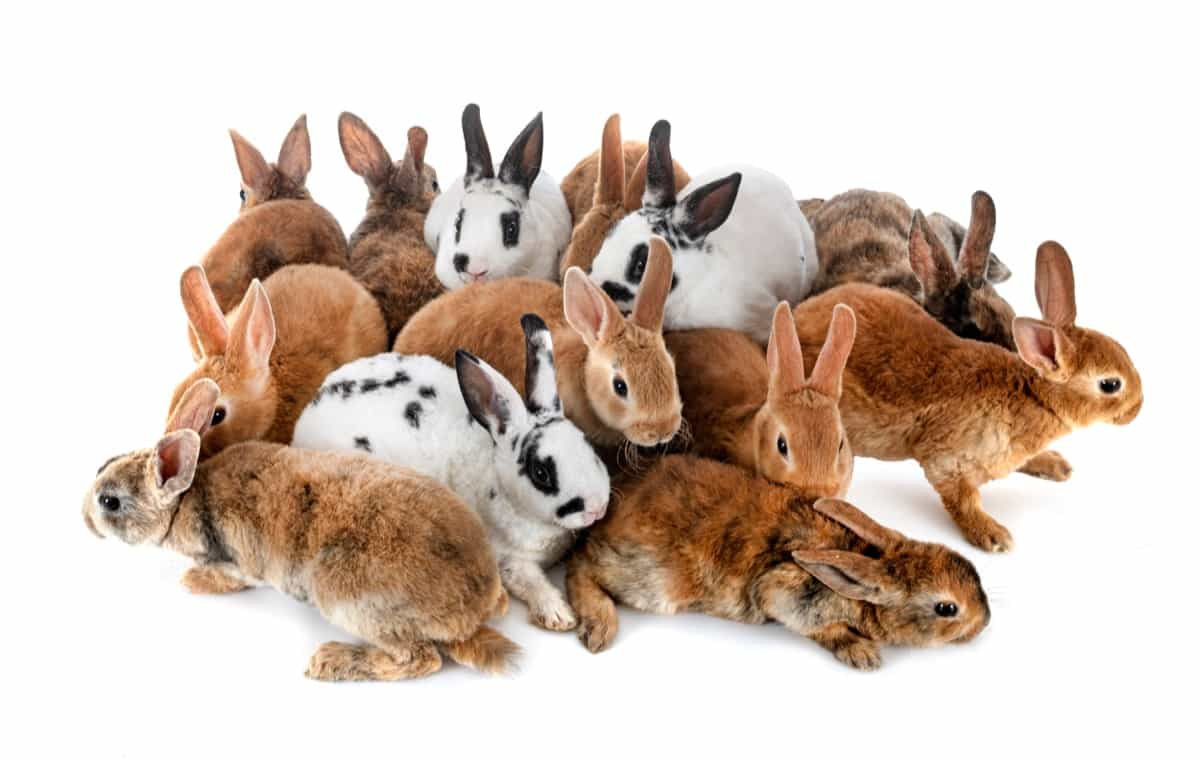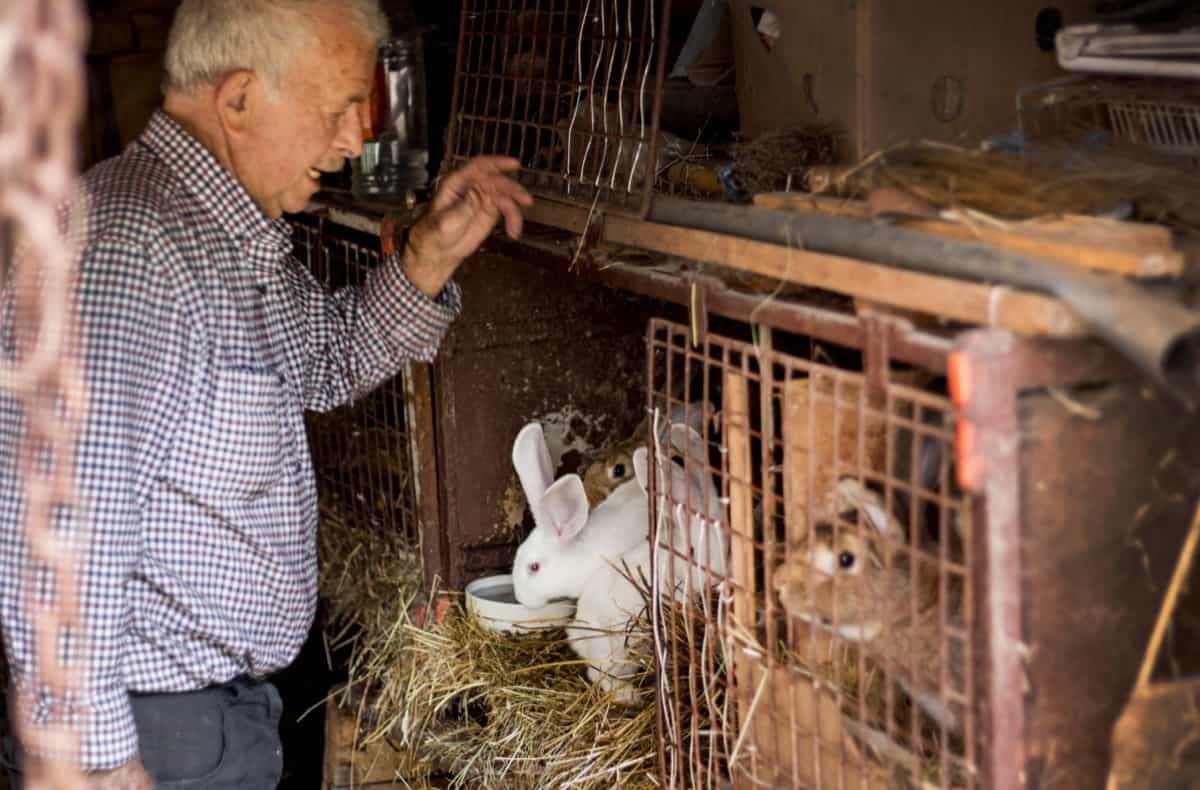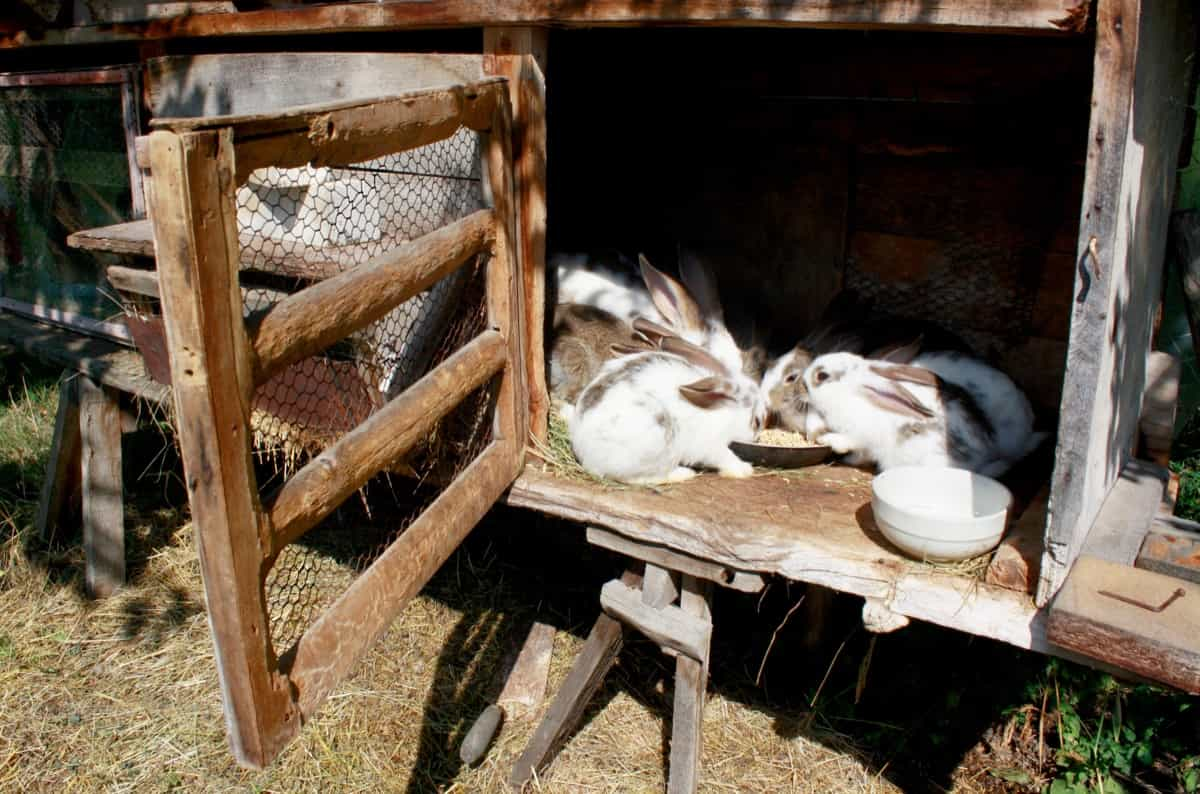Rabbit farming, an agrarian practice gaining widespread popularity for its potential profits and sustainability, is challenging. This is especially true for beginners raising rabbits, where the task can seem daunting due to the delicate nature of these animals. This article explores the top nine common mistakes that rabbit farmers, especially beginners, must avoid to ensure successful and profitable farming.

We’ll delve into topics such as raising rabbits on the ground, raising rabbits for food and meat, and the nuances of rabbit breeding. Let’s understand these common pitfalls and how to navigate them.
Top 9 Common Mistakes to Avoid in Rabbit Farming
Inadequate Housing and Space Management for Rabbits
The first critical mistake that often plagues beginners is the provision of inadequate housing and poor space management for rabbits. Raising rabbits, particularly for profit, requires ample space for the animals to grow, play, and breed. For instance, when raising rabbits on the ground, the enclosure should offer enough room to hop and run around, encouraging their natural behavior.
Overcrowding the animals can increase stress levels, significantly impacting their growth and productivity, especially when raising rabbits for meat. Providing enough space also reduces the likelihood of fights and injuries among the rabbits, which could otherwise severely hinder their well-being and productivity. Hence, investing in spacious, well-structured rabbit housing is essential for a successful rabbit farming venture.
Neglecting Proper Nutrition and Feeding Practices
The second mistake revolves around neglecting proper nutrition and feeding practices. Rabbits have a unique digestive system, and feeding them a balanced diet is crucial to their overall health and productivity, especially when raising rabbits for food or meat. Many beginners make the mistake of feeding rabbits solely on commercial rabbit feed, overlooking the importance of a varied diet rich in fresh vegetables, hay, and occasional treats like fruits.
This approach can lead to nutrient deficiencies and health problems over time. Besides, irregular feeding times can disrupt the rabbit’s digestive process, leading to problems like GI stasis. Therefore, understanding and implementing proper nutrition and feeding practices are essential for healthy and profitable rabbit farming.
Failure to Provide Fresh Water and Hydration for Rabbits
Next, the importance of providing fresh water and ensuring proper hydration for rabbits cannot be overstated. Like other animals, rabbits require regular access to clean, fresh water for their physiological functions and overall well-being. Unfortunately, this aspect of rabbit care is often overlooked, leading to dehydration, which can have severe consequences, especially when raising rabbits for meat or profit.
Rabbits can consume a surprising amount of water each day, especially during warmer months, and their water supply should be consistently monitored and refreshed to ensure it remains clean and uncontaminated. Therefore, failure to provide fresh water and proper hydration is a mistake that can have dire consequences on rabbit health and productivity.
In case you missed it: Frequently Asked Questions About Rabbit Farming

Lack of Proper Ventilation and Temperature Control in Rabbit Housing
The fourth common mistake in rabbit farming is the lack of proper ventilation and temperature control in rabbit housing. Rabbits are highly sensitive to extreme temperatures, especially heat, and can suffer from heatstroke if their environment is not appropriately controlled. Lack of temperature control and proper ventilation can create a stressful environment, leading to low productivity, especially when raising rabbits for profit. Therefore, ensuring well-ventilated housing with regulated temperature is crucial for the well-being and productivity of the rabbits.
Ignoring Signs of Disease and Delaying Veterinary Care
Rabbits are prey animals and are naturally adept at hiding their illnesses to avoid appearing weak to predators. This means a sick rabbit may not show signs of illness until it’s advanced. Therefore, it’s critical to closely monitor your rabbits for any subtle changes in their behavior, eating habits, or physical appearance.
Early detection of diseases can help in their timely treatment, improving the chances of recovery, especially when raising rabbits for meat or for profit, where the rabbits’ health directly impacts the venture’s success. Delaying veterinary care can spread diseases within the rabbit population, potentially causing a significant loss.
Overlooking the Importance of Socialization and Handling of Rabbits
One mistake that can be easily overlooked is neglecting the importance of socialization and proper handling of rabbits. Rabbits are social animals; regular interaction and handling can significantly affect their mental well-being and overall health. Socialization helps reduce stress levels among rabbits, which is crucial for productivity, particularly when raising rabbits for profit.
Moreover, well-socialized rabbits are easier to handle, making management tasks like feeding, grooming, and health checks much more manageable. Therefore, neglecting the importance of socialization and handling rabbits can prove detrimental to the success of your rabbit farming venture.
In case you missed it: Feeding Livestock with Microgreens: For Cattle, Goats, Sheep, Rabbits, and Pigs

Inadequate Predator Protection and Security Measures
Failing to put appropriate predator protection and security measures in place is a critical mistake. This is especially true when raising rabbits on the ground, where predators like raccoons, foxes, or even stray dogs are more susceptible to attacks. Security measures like fences, sturdy cages, and lockable doors can keep predators at bay. Failing to ensure these measures can result in significant losses, particularly when raising rabbits for profit, where the financial impact can be devastating.
Neglecting Regular Cleaning and Sanitation of Rabbit Housing
Good hygiene practices are key to preventing disease outbreaks and ensuring the rabbits’ overall well-being. Dirty living conditions can spread parasites and diseases, severely affecting the rabbits’ health and productivity. Moreover, poor sanitation can lead to an unpleasant odor, attracting flies and other pests, causing further health risks. Therefore, regular cleaning and proper sanitation practices should be integral to your rabbit farming routine.
Improper Breeding Management and Lack of Genetic Diversity
Overbreeding can result in a larger population than the available resources can support, leading to overcrowding and increased stress among the rabbits. Also, a phenomenon known as “rabbit breeding fall off” can occur, a decline in the breeding success rate due to overbreeding.
On the other hand, a lack of genetic diversity due to inbreeding can lead to genetic disorders and a decline in the overall health and productivity of the rabbits. Thus, having a well-planned breeding management strategy is crucial to ensure the sustainability of your rabbit farming venture. To summarize, here is a table highlighting the nine common mistakes in rabbit farming and their solutions:
In case you missed it: Top 10 Rabbit Diseases: Symptoms, Causes, Prevention, and Control

| Mistake | Solution |
| Inadequate Housing and Space Management | Provide spacious and well-structured housing. |
| Neglecting Proper Nutrition and Feeding Practices | Offer a balanced and varied diet with regular feeding times. |
| Failure to Provide Fresh Water and Hydration | Ensure regular access to clean, fresh water. |
| Lack of Proper Ventilation and Temperature Control | Provide well-ventilated housing with regulated temperature. |
| Ignoring Signs of Disease and Delaying Veterinary Care | Monitor for disease signs and provide prompt veterinary care. |
| Overlooking Socialization and Handling | Interact regularly and handle rabbits gently. |
| Inadequate Predator Protection and Security Measures | Ensure secure housing and predator. |
- Feed Your Flock for Less: Top 10 Tips to Save on Chicken Feed
- Ultimate Guide to Ossabaw Island Hog: Breeding, Raising, Diet, and Care
- Hatching Answers: The Top 10 Reasons Your Chickens Aren’t Laying Eggs
- Eggs and Economics: Breaking Down the Cost of Raising Backyard Chickens
- Defend Your Greens: Proven Methods to Keep Iguanas Out of Your Garden
- Ultimate Guide to Cinnamon Queen Chicken: A Comprehensive Guide for Beginners
- Ultimate Guide to California Tan Chicken: Breeding, Raising, Diet, Egg-Production and Care
- Ultimate Guide to Marsh Daisy Chicken: Breeding, Raising, Diet, and Care
- 10 Types of Chicken Farming Businesses You Can Start for Profits